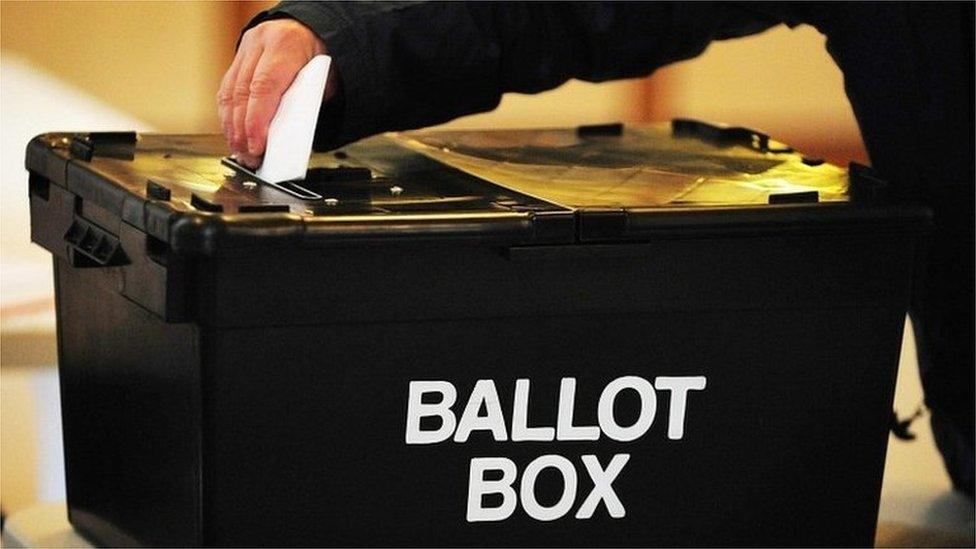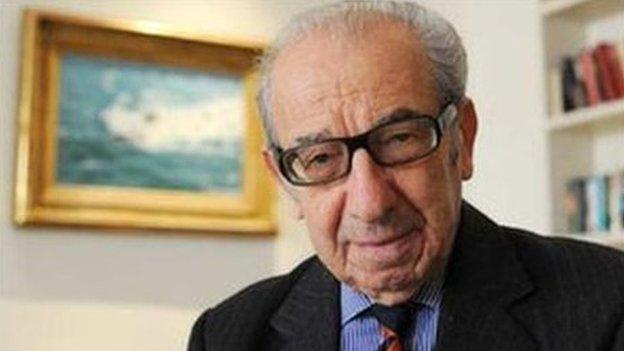Long-term expats 'to get vote in UK elections'
- Published

UK citizens who have lived abroad for more than 15 years are to get the right to vote in general elections.
The announcement was made in the fine print of the Budget, with £2.5m put aside to fund the change.
Those affected will be allowed to vote in the constituencies where they lived before leaving the country.
Successive governments have promised to change the law, passed in 2002, which removes people living abroad for more than 15 years from the electoral roll.
But paragraph 2.41 of the Treasury Red Book, which sets out government's planned spending in detail, says: "Overseas Electors - the government is providing an additional £2.5m to remove the limit preventing British citizens who live overseas from voting after 15 years."
A Treasury spokesman said legislation would be laid before Parliament later this year to bring about the reform.
This follows a long campaign by Harry Shindler, an expat WWII veteran who moved to Italy around 40 years ago.

Harry Shindler said it was 'an important day for freedom'
He told the BBC in 2011: "There was a war to bring the vote to the people of Europe. We won the war, but some of the people who took part in the war, me included, are not allowed to vote themselves."
Mr Shindler lost a number of court battles over the years and in 2012 threatened to take his case to the United Nations, saying that the law was in contravention of the "universal" right of "manhood suffrage".
On hearing of his campaign victory, he tweeted: "It's very good news that the UK's 15 year voting rule is ending as part of #Budget2021.
"We fought to defend our right to vote in WW2 and now we will get to use it. This is an important day for freedom."
At the 2019 general election there were a record 233,000 registered overseas voters.
Before 1985, UK citizens living outside the country were unable to vote in general elections. After a law change, they were able to do so for five years after going abroad.
The time limit was extended to 20 years in 1989, before being reduced to 15 years in 2002.